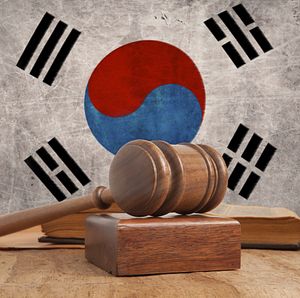In what prosecutors hope will be the final chapter in one of the most sensational murder cases in South Korean history, an American citizen was extradited to the country on Wednesday to face trial for the 1997 killing of a student at a fast food restaurant.
Arthur Patterson is accused of stabbing 22-year-old Cho Choong-pil to death almost two decades ago at a Burger King in one of Seoul’s most popular entertainment districts. After receiving a pardon for a conviction on lesser charges, including the destruction of evidence, the California native left South Korea in 1999. In a lapse that caused subsequent uproar, authorities reinvestigating the case failed to institute a travel ban in time to prevent his departure. The murder and claims that authorities bungled the investigation became so infamous that they formed the premise of a popular film in 2009, Where the Truth Lies. Prosecutors in South Korea finally indicted Patterson for murder in 2011.
When he finally gets his day in court, Patterson will have to navigate a legal system that differs in significant ways from that in his homeland.
While sharing many of the fundamental principles of its U.S. equivalent — the presumption of innocence, the right to a lawyer and the requirement of guilt beyond a reasonable doubt to convict, for instance — South Korea’s version of justice borrows heavily from the German, civil-law tradition, according to “Overview of Legal Systems in the Asia-Pacific Region: South Korea,” a paper at Cornell Law Library.
The idea of trial by your peers, for example, was only introduced in 2008 — and only on an optional, nonbinding basis.
“In Korea, a criminal defendant may request a jury trial, but the court/judge can decide not to allow it,” Kang Ju-won, a member of the Seoul Bar Association, told The Diplomat. “Unlike in the U.S., a right to a jury trial is not a constitutional right here in Korea. Also, a jury verdict is not legally binding, but judges usually go with the verdict.”
Further, plea bargaining is not recognized in South Korea, while the protection against being tried twice for the same crime, aka double jeopardy, is also interpreted differently. A decision is only considered final at the level of the Supreme Court, giving prosecutors three chances to secure a guilty verdict. In the United States, the state is unable to challenge a finding of innocence, even if it is reached in a lower court.
Kang explained: “Double jeopardy [only] applies when a decision is final, e.g. no more appeals are allowed.”

































